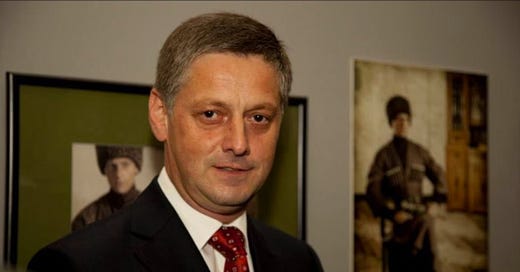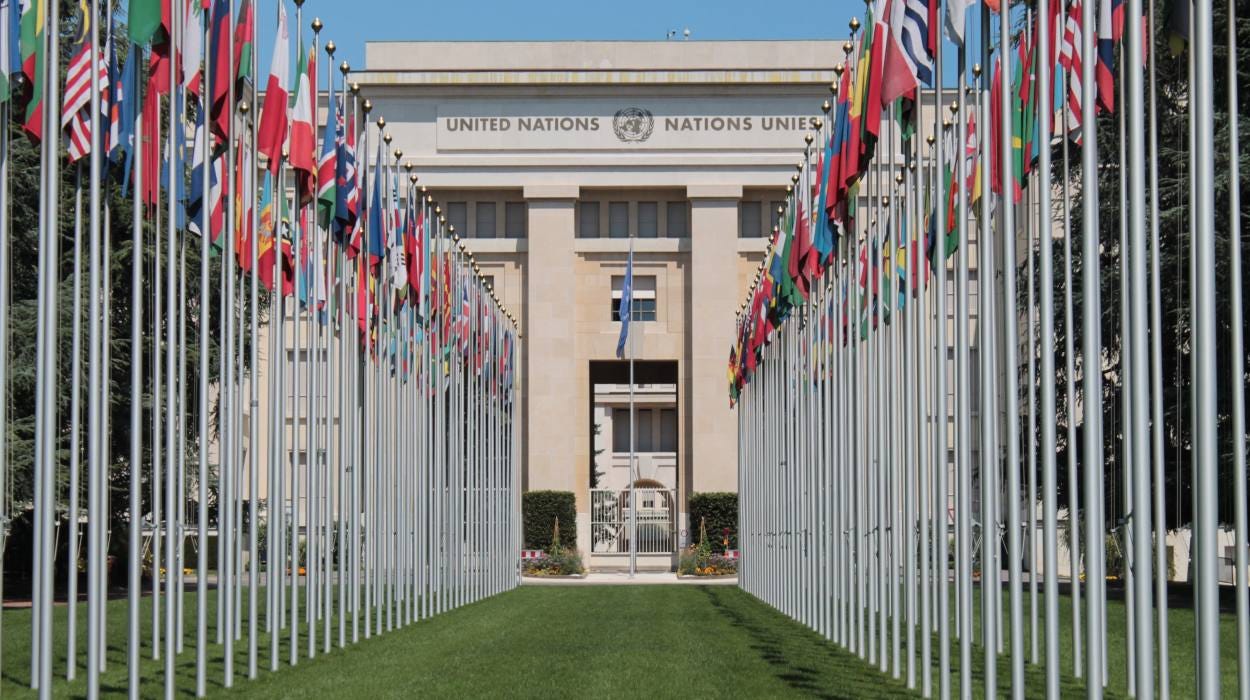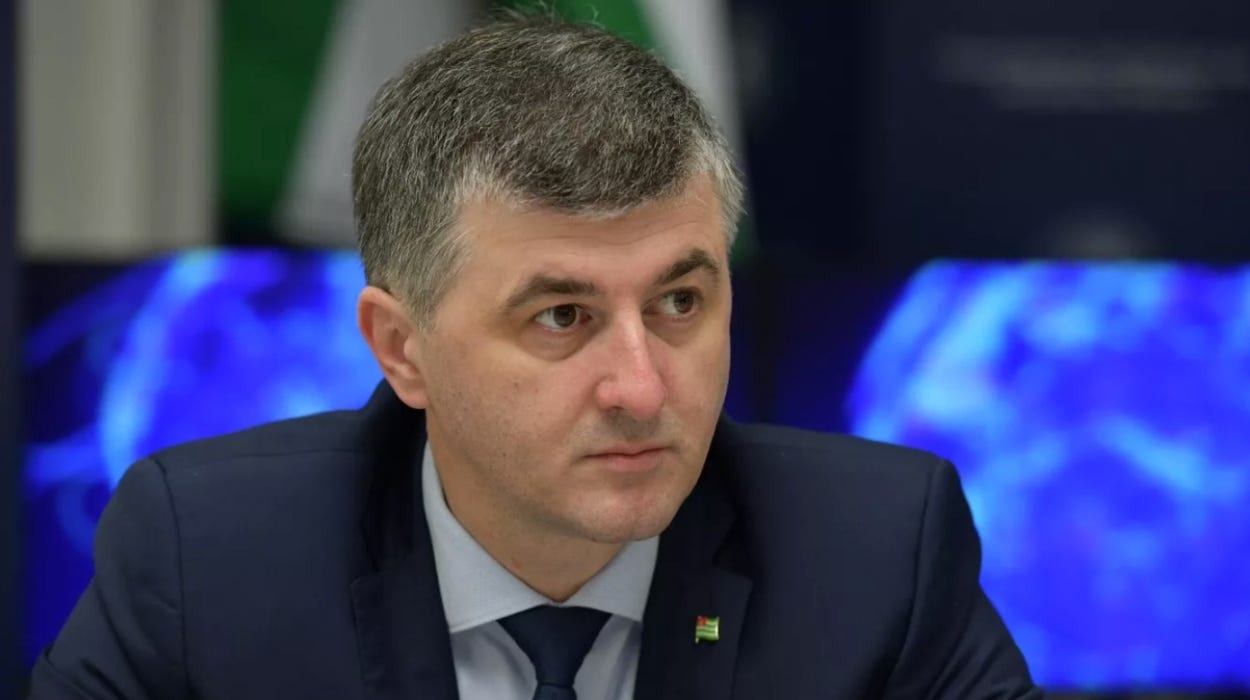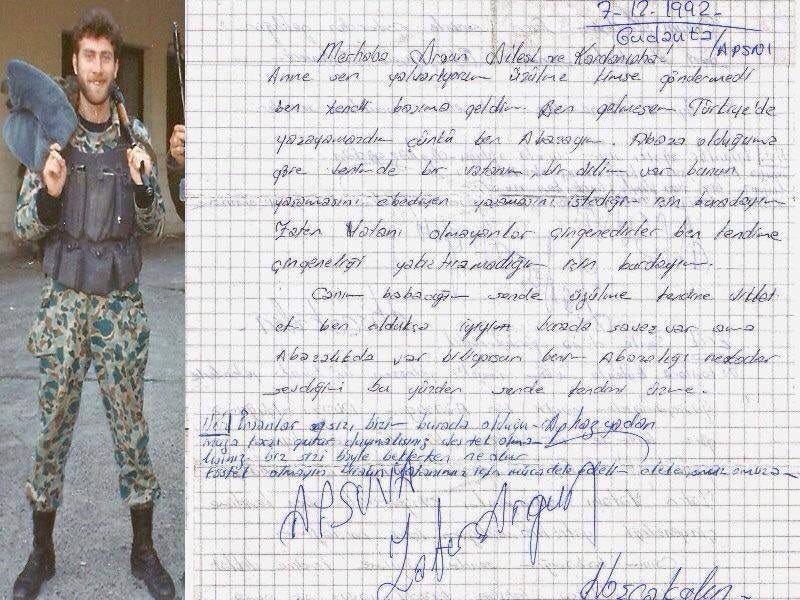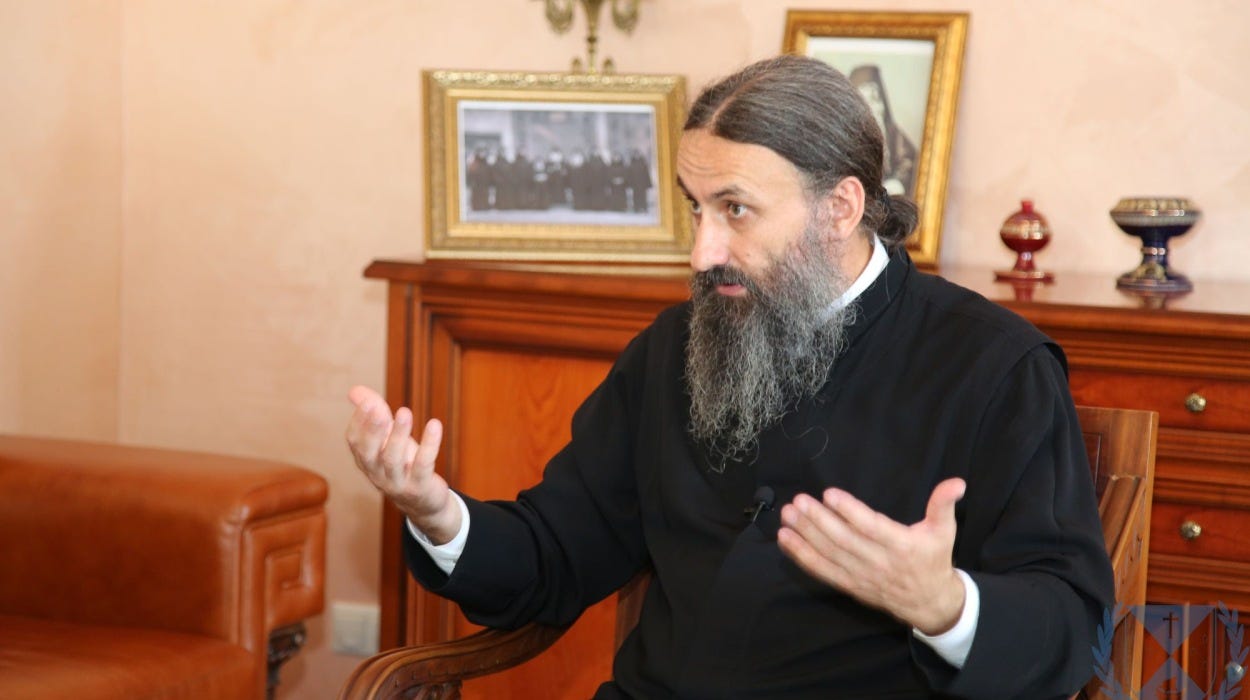AW Newsletter | 6 April 2023
Akhra Aristava: "Containers arrived in Abkhazia for the first time, but cargo has been coming before this as well"
Recently, a notification appeared on the website of the Republican Unitary Organization "Abkhazian Railway," stating that "for the first time in the history of the Abkhazian railway, a container train arrived at the Sukhum station - this is a linear logistics service, a freight train."
"Containers carry a wide range of cargo," and the train that arrived in Abkhazia consisted of 62 containers with a total cargo weight of 2,700 tons. The arrival of the freight container train was called the "first sign" by Alias Labakhua, Deputy Chairman of the State Customs Committee of Abkhazia, who expressed hope that despite the modest customs payment, "the state budget will be collected penny by penny."
Economist Akhra Aristava commented on the news about the container train in an interview with Ekho Kavkaza [Echo of the Caucasus] and did not share the optimism of the official from the State Customs Committee.
Of course, transit is beneficial for the railway and seaports as it provides jobs and income, but I don't see many reasons for optimism. Firstly, transit has been established for a long time. If you recall, there was a scandal in Turkey regarding the origin of coal. I think that was two years ago. It was unclear whether Russian coal was being transported to the Republic of Turkey through Abkhazia or if it was some other coal, but there were protests from Georgia, so I would not publicly discuss these questions yet.
Cargoes are transported by rail or by road, arrive at our ports (either Ochamchira or Sukhum), are reloaded onto Turkish ships, and then continue to Turkey or other countries. This has been the practice for many years.
Abkhazia Calls for Non-Use of Force Agreement in Geneva Talks
The delegation from the Ministry of Foreign Affairs of Abkhazia participated in the 57th round of international discussions on security and stability in the Transcaucasus, according to a report from the Media Centre of the Ministry of Foreign Affairs of Abkhazia.
Almost all participants, including the Abkhaz side, agreed on the need to renew the Incident Prevention and Response Mechanism (IPRM) in Gal, but some of Abkhazia's proposals were not supported by Georgia. During the meeting, the participants also discussed internal political events in Georgia, which some participants believed could destabilise the situation in the region. Additionally, the problem of using Abkhazian passports as travel documents was raised.
However, the Georgian side once again refused to discuss the key issue on the agenda, which was Abkhazia's demand for a legally binding document on international guarantees of non-use of force. The question of Tbilisi signing a legally binding document on non-use of force was postponed to the next round of discussions.
The 58th round of the International Geneva Discussions on Security and Stability in the Transcaucasus is scheduled for July 2023.
Toivo Klaar, the EU Special Representative for the South Caucasus, tweeted on April 5th, 2023, that the 57th round of the Geneva International Discussions was important to have held, despite the difficulty in doing so. The Co-Chairs of the GID released a press communique, indicating that the participants reiterated their commitment to the process and interest in ensuring continuity of the GID as the only platform where the conflict consequences are addressed. The Co-Chairs and participants also acknowledged the key role played by the GID as a platform for predictability and dialogue, for the benefit of security and stability, as well as the well-being of conflict-affected populations. However, the participants could not reach a common understanding on the issue of non-use of force and international security arrangements, and the issue of IDPs and refugees could not be fully covered due to a walkout by some participants.
Transcaucasia Security Talks Stalled Over Non-Use of Force Agreement Dispute
In an interview with Sputnik, Irakli Tuzhba, Deputy Minister of Foreign Affairs of Abkhazia, discussed the 57th round of the International Discussions on Security and Stability in Transcaucasia held in Geneva. Tuzhba expressed uncertainty about the future regularity of these talks, stating that only one of four planned rounds occurred in 2022. He emphasized the importance of signing a legally binding document on the non-use of force between Georgia, Abkhazia, and South Ossetia. However, Tuzhba revealed that the Georgian delegation insists on signing an agreement with Russia instead, a stance that Abkhazia, South Ossetia, and Russia strongly disagree with. This disagreement hinders the resolution of existing issues and prevents a full discussion on international guarantees of non-use of force.
Despite the 1994 Moscow Accords establishing a demilitarized zone after the Georgian-Abkhazian war, Saakashvili introduced an armed 'police-force' into the Kodor Valley in 2006. Georgia had previously tried to reconquer Abkhazia in 1998 and 2001, South Ossetia in 2004, and entered the Kodor gorge in 2006.
Despite the disagreements, all participants in the discussions positively assessed the resumption of negotiations. However, the deep contradictions between the Abkhaz and Georgian delegations continue to obstruct the start of a dialogue on agreeing on a document on the non-use of force.
Remembering Zafer Argun: A Tribute to a Fallen Hero
Zafer Argun (26 April 1968 - 5 April 1993) was born in Bursa-İnegöl (Türkiye). When Georgia invaded Abkhazia on 14 August 1992, Zafer Argun was among the first from the diaspora to join the front line in defence of his homeland.
He was remembered by his comrades for his fearlessness and courage. Argun tragically lost his life on 5 April 1993, and is buried in his homeland of Abkhazia, in Gudauta.
An excerpt from a letter Zafer Argun wrote to his family:
It is worth noting that the main reason for my coming to Abkhazia is the war and the fact that I am an Abkhaz. I thought, 'Since I proudly walk around calling myself an Abkhaz, why should I stand by while my people and my homeland are dying and being destroyed?' So, without being influenced by anyone, I repeat, by no one, I came here. If I hadn't come, I couldn't live in Turkey because I am Abkhaz. As an Abkhaz, I have a homeland and a language, and I am here because I want them to survive and thrive. My dear father, don't be sad, take care of yourself. I am doing quite well. There is a war here, but there is also Abkhaz identity, and you know how much I love being Abkhaz, so don't be upset for me...
― 7/12/1992, Gudauta, Apsny
Preserving Abkhazian Identity Through Statehood, by Dorofey Dbar
Why do we need to have our own state?
If I ask this question to you, those present in this hall, each of you will have your own answer. However, I think we will agree that we need a state to preserve the Abkhazian ethnos, to preserve its identity, to preserve the language and culture of our people. And, of course, to develop and secure a future for the aforementioned aspects.
How can we, the Abkhazians, preserve our place in the human mosaic? We can do this if we have our own state! In other cases, we face assimilation and loss of identity. Unfortunately, human history abounds with many examples in this regard.
Why am I, a church person, telling you this when it seems that I should be concerned with completely different issues? Because neither our ancestors nor we had a choice of where to live and develop. According to the Abkhazian legend, we live on this land by the grace of God Himself! Perhaps, if we had a choice, we might have preferred, for example, a beautiful Greek island or Switzerland. But we were born here, and this is a given! We speak the Abkhazian language, and this is a given! Thus, if the initial choice of location, language, etc. did not depend on us, our task is to preserve the existing objective reality. If we do not do this, our existence on Abkhazian land will have no meaning.

